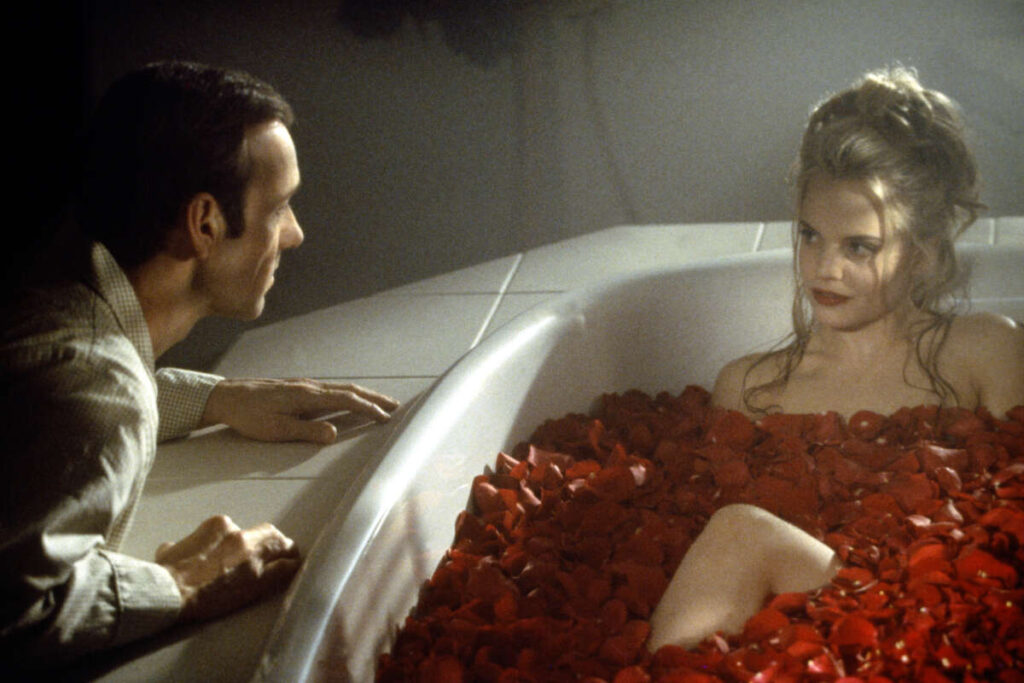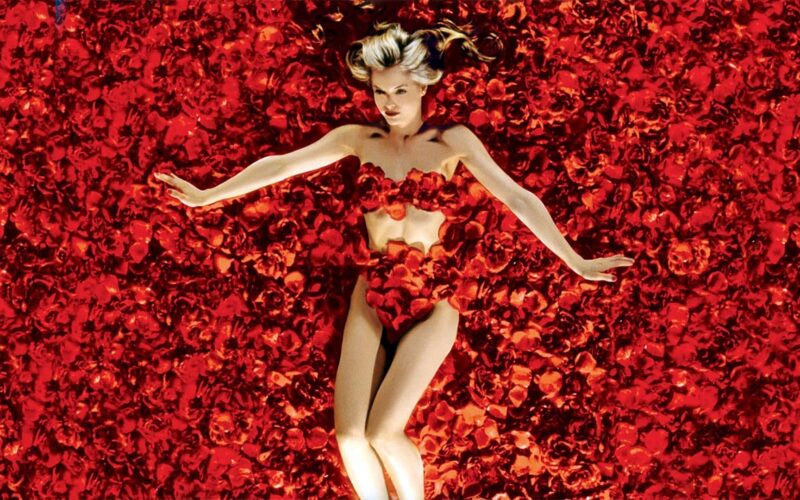Directed by Sam Mendes and penned by Alan Ball, American Beauty was a sharp, unflinching look at the emptiness hiding beneath the perfectly manicured lawns of suburban America. Now, as it celebrates a quarter-century, it’s worth revisiting why this film made such a huge impact and why it still holds up today.
The Story That Exposed the Cracks in Suburban Perfection
American Beauty isn’t just about a midlife crisis; it’s about the unraveling of the American Dream. At its core, the film tells the story of Lester Burnham (Kevin Spacey), a man who, on the surface, seems to have it all: a stable job, a beautiful house, and a family. But as Lester says in the opening lines, “In less than a year, I’ll be dead. Of course, I don’t know that yet.” With that ominous introduction, we’re thrust into a world where nothing is as it seems.
Lester’s journey from a lifeless, disillusioned office worker to a man trying to reclaim his lost vitality is both tragic and darkly comedic. “It’s a great thing when you realize you still have the ability to surprise yourself,” Lester says as he begins to break free from his mundane existence. This quote captures the essence of his transformation, as he starts to push back against the superficiality that surrounds him.

Visuals That Speak Volumes
One of the most memorable aspects of American Beauty is its striking visual style. Cinematographer Conrad L. Hall crafted some unforgettable imagery that has become iconic over the years. Remember the scene where Angela (Mena Suvari) is covered in rose petals? That shot has been parodied and referenced countless times, but it’s more than just eye candy. It symbolizes the allure of forbidden desires and the dangers of idealizing beauty.
The roses themselves are a recurring motif throughout the film, representing the duality of beauty and pain. As Lester’s wife, Carolyn (Annette Bening), cares meticulously for her roses, it becomes clear that she’s more invested in maintaining appearances than nurturing her family. “Look at me, jerking off in the shower. This will be the high point of my day; it’s all downhill from here,” Lester quips early in the film, highlighting the stark contrast between the beautiful exterior and the bleak interior of their lives.
A Cast That Brought the Story to Life
American Beauty wouldn’t be the film it is without its stellar cast. Kevin Spacey’s portrayal of Lester Burnham is often cited as one of his best performances, bringing a mix of humor, pathos, and unsettling creepiness to the role. Despite the controversy surrounding Spacey today, it’s hard to deny the impact of his performance at the time.
Annette Bening, as Carolyn Burnham, is equally compelling. Her character is obsessed with success and appearances, yet she’s deeply unhappy. “I refuse to be a victim,” she declares, even as her life spirals out of control. Bening captures Carolyn’s complexity—she’s both a product and a victim of the pressures of suburban life.
And then there’s Wes Bentley as Ricky Fitts, the strange, voyeuristic neighbor who sees beauty in the mundane. Ricky’s line, “Sometimes there’s so much beauty in the world, I feel like I can’t take it,” has become one of the film’s most quoted and poignant moments, encapsulating the film’s core message that beauty and pain are often intertwined.

A Film That Still Hits Hard Today
Looking back, American Beauty was a product of its time, but its themes have only grown more relevant. The film’s critique of materialism, the emptiness of suburban life, and the pursuit of superficial success resonates just as much today as it did in 1999. In a world where social media often amplifies the pressure to present a perfect image, American Beauty serves as a reminder that what’s on the surface is often a mask for something much darker.
Sure, the film has its flaws, and it has sparked its fair share of controversy over the years, especially in light of the allegations against Spacey. But setting those issues aside, American Beauty remains a powerful film that challenges viewers to look closer—at their lives, their relationships, and what they truly value.
So, as American Beauty celebrates its 25th anniversary, it’s a perfect time to revisit this dark satire. Whether you’re watching it for the first time or the tenth, you’ll likely find something new to appreciate—or to be disturbed by. Because if there’s one thing this film teaches us, it’s that beauty isn’t always what it seems.









